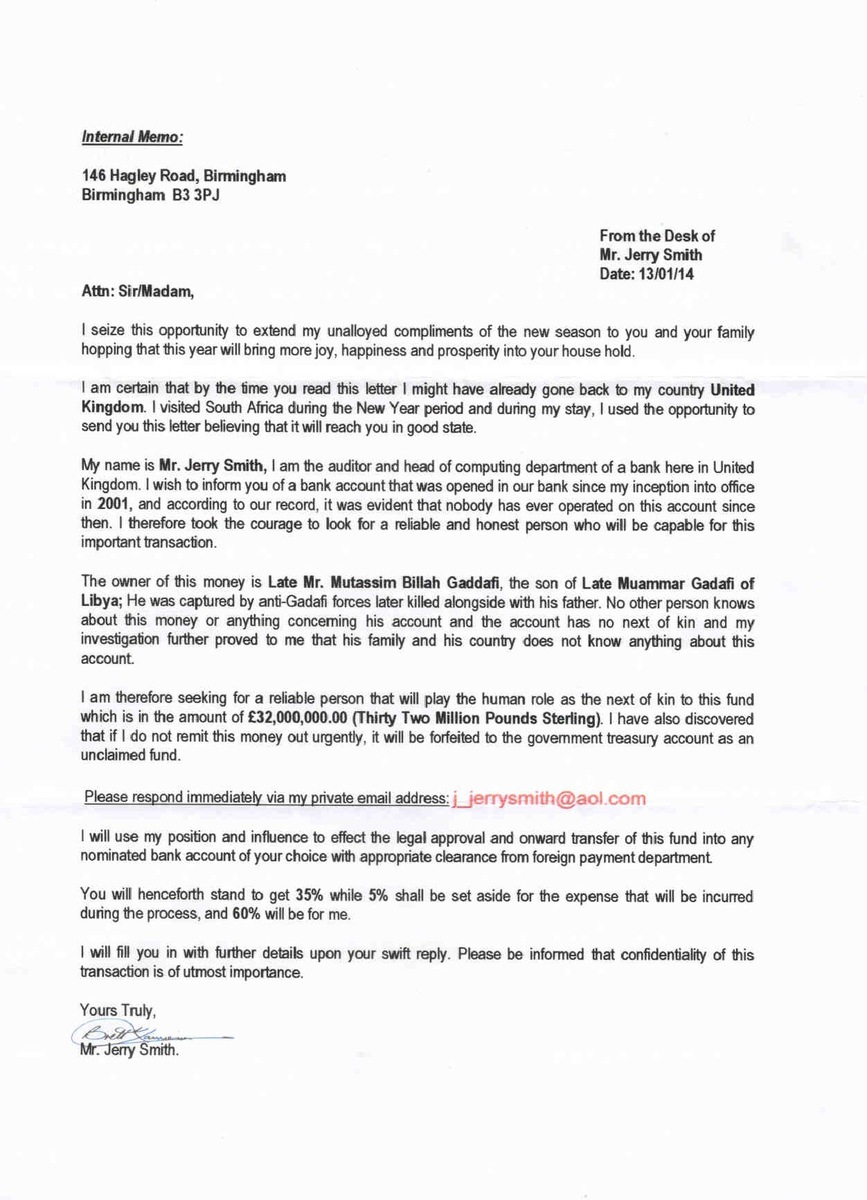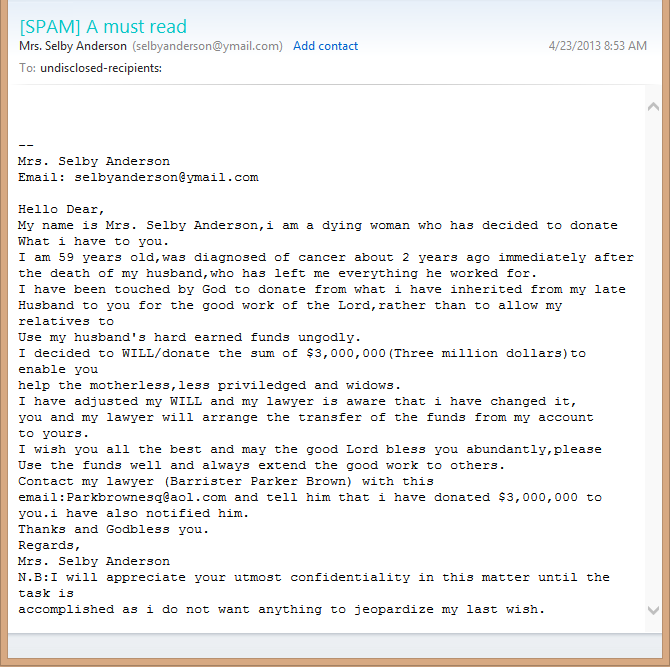The “Nigerian scam" – when you’ve received an e-mail from an American celebrity
The Nigerian scam first emerged in the late 1970s and early 1980s. At that time, it was still conducted by traditional mail. Various channels of communication are now being used for this purpose – most often, it’s e-mail contact, but it’s not uncommon for such messages to be sent via social media, SMS or instant messaging platforms.
Common scenarios
- The oldest scenario, which you can still come across, is where the scammer pretends to be a member of a royal family or one reigning in an African country. They are often "dissidents" or "exiled children" trying to return to their country who will promise you a fortune in return for helping them to go back once they have succeeded in taking power in their country. In the example below, the scammers offer their victim £10 million in exchange for helping them to transfer the supposed fortune of the son of an African dictator.
 *Source: HelenOnline - Own work, CC BY-SA 3.0, https://commons.wikimedia.org/w/index.php?curid=30680240
*Source: HelenOnline - Own work, CC BY-SA 3.0, https://commons.wikimedia.org/w/index.php?curid=30680240
- You have won money in a lottery you didn’t take part in or you’re going to receive a donation, as in the image below.
 Source
Source
A frequent pretext invoked in such messages is also an invitation to participate in an investment project and the promise of a quick profit many times higher than your contribution.
A "celebrity" (actor, millionaire or member of the royal family) is in "temporary trouble", e.g. they have got stuck at the airport and need to borrow 5,000 USD to get home or their child is in hospital and will die if the money isn’t transferred immediately. Of course, as the "celebrity" is a wealthy person, they will give you the money back as soon as they can. In 2021, a resident of eastern Poland fell victim to such a scam, believing that Will Smith had written to her asking her to collect a package containing diamonds, 3 million USD in cash, and divorce papers on his behalf. The criminal conned the woman out of 45,000 PLN under the pretext of having to obtain a "certificate" and paying customs duties. After receiving the transfer, they went out of touch.
How to recognise such messages and how to defend yourself against them?
- Pay attention to what language is used in the message. If it is broken English or broken sounding as if it was generated by an automatic translator, it’s most likely a phishing attempt.
- To find out how to check who sent you the e-mail you’ve received, read our article on the subject.
- Use the principle of precaution. If something seems implausible or you haven’t entered any competition, treat such a message as a scam attempt. The examples described above are just the tip of the iceberg and the variety of scam scenarios is limited only by the imagination of the criminals.
- Check the information using another channel, e.g. by calling the helpline of the company from which you allegedly received the e-mail or sending a text message to the person from whom you received the dubious message on social media.

*Source: HelenOnline - Own work, CC BY-SA 3.0, https://commons.wikimedia.org/w/index.php?curid=30680240